Quercus Books
With this issue, Shelf Awareness welcomes Quercus Books, the young, growing U.K. indie publisher, to the U.S. The stories were written by John Mutter and Shannon McKenna Schmidt. The issue is supported by the publisher.
With this issue, Shelf Awareness welcomes Quercus Books, the young, growing U.K. indie publisher, to the U.S. The stories were written by John Mutter and Shannon McKenna Schmidt. The issue is supported by the publisher.
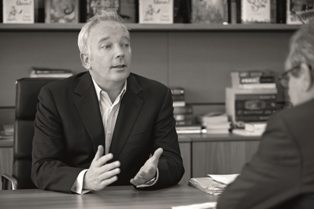 |
|
| Mark Smith | |
With a wide range of titles--including thrillers, women's literature, children's books, translated literary fiction, narrative and illustrated nonfiction, and sci-fi, fantasy, and horror--Quercus is launching its first U.S. list in September. The company aims to replicate its success in the U.K. by creating a publishing house here that is just as diverse in its offerings, with a mix of both U.S. and international titles. Quercus CEO Mark Smith said of the venture, "We are truly excited to be bringing both our new and established authors to this dynamic and fast-moving marketplace."
"Representing the best of what Quercus has to offer," as publishing director Richard Green said, Quercus is starting with some 40 titles in the U.S. this fall. Next year, Quercus will publish 90 titles here, with plans to publish an increasing number of titles over subsequent years. As Green put it, "We're here for the duration. We have been planning this move for over two years and have carefully researched the market and listened to advice from a range of industry experts. The list has been carefully hand-picked for the North American market, and we will be supporting all our titles with substantial marketing and publicity campaigns."
 |
|
| Richard Green | |
The initial list demonstrates Quercus's range: Loss of Innocence by Richard North Patterson, a novel that takes place in the turbulent year of 1968 and set mostly on Martha's Vineyard; Alex by Pierre Lemaitre, a thriller introducing a Parisian police commandant searching for a kidnapped young woman named Alex; U.K. bestseller Thursdays in the Park by Hilary Boyd, dubbed "granny lit," about a 59-year-old woman who finds an unexpected second chance at love; George Washington: Gentleman Warrior by Stephen Brumwell, which last month won the George Washington Book Prize; Sanctuary Line by Jane Urquhart, a novel of loss and love set on Lake Erie; The Deliverance of Evil by Roberto Costantini, an internationally bestselling literary thriller set in Italy; and the multiple award-winning Unhooking the Moon by Gregory Hughes, a middle-grade novel about an unforgettable road trip that takes two orphans from the plains of Winnipeg to New York City in search of a mysterious uncle. (For more about these and other forthcoming Quercus books, see below.)
The current publishing program consists of about two-thirds fiction, another third nonfiction. In time, the company aims to increase the number of American authors on the list to around half of the total. Smith said, "We want to keep an international flavor, take on American authors like Brian Freeman, Corban Addison and Richard North Patterson, as well as find debut authors here and nurture them."
Random House Publisher Services is distributing Quercus in the U.S. and Canada. Both Smith and Green praised RHPS, noting that having to tie into the distributor's systems and meet its deadlines has helped Quercus improve its own internal processes--lessons about business practices that it will take back to the U.K. "Random's supply chain and inventory management systems are really impressive," Green said. Smith added: "I'm surprised at how much they share. They're very enlightened. They say, 'If you're successful, we're successful.' It really is a partnership."
 |
|
| Eric Price | |
The Quercus team in the U.S. includes Eric Price, director of sales, marketing and publicity, who worked at Grove/Atlantic for more than 20 years, most recently as associate publisher and COO. Quercus associate publisher Nathaniel Marunas was executive editor-at-large at Sterling Publishing and before that was associate publisher at Black Dog & Leventhal. Anna Hezel is digital marketing manager and an editorial assistant. The team will expand, and Green promised, "You won't hear a British accent. This is absolutely going to be an American operation."
Quercus sees a lot of potential in the U.S. market. "We are well aware that these are challenging times for book publishers everywhere," Green said. "But coming from a tough U.K. market, we see an enormous upside to operating in the U.S. This is a tremendous opportunity to establish a flexible and proactive publishing business in North America. We have amazing books, are hiring a great team, and will work closely with RHPS to develop the business into one that has scale, diversity and ambition."
Quercus was founded in the U.K. in 2004 by Smith and Wayne Davies, who is executive director of digital. Originally an illustrated book publisher, Quercus sold co-editions around the world to retailers, including Barnes & Noble and Borders. "It was a reasonably low-risk way of doing business, and a great success," Smith said. After a while, realizing it was "missing a trick," the company decided to become an "all-round trade publisher," expanding into fiction. Its first trade list in 2006 included many crime thrillers and such American authors as Joseph Wambaugh, Andrew Klavan, and Thomas H. Cook.
 |
|
| Nathaniel Marunas | |
The company had some early successes, including, in 2007, The Tenderness of Wolves by Stef Penney, which won the Costa Book of the Year Award and was longlisted for the Orange Prize. In 2008, Christopher MacLehose, who has his own imprint at Quercus, began publishing Stieg Larsson's Millennium trilogy, which has sold many millions of copies in the U.K. alone. (Quercus fortuitously bought English-language rights and licensed them to Knopf in the U.S. and Penguin in Canada.) Larsson's titles helped the company fund its expansion and the U.S. launch. "It has allowed the company to broaden and not rely on one thing," Smith said. "Its legacy has been used wisely, invested in authors and in different categories."
In the U.K., the company now sits "right in the middle between small indies and large conglomerates," Smith said. Unlike many independent publishers, which have done well finding and nurturing new and debut authors only to lose them to large publishers, Quercus has not lost any of the new and debut authors it has nurtured and wanted to keep.
In part, this is because, Smith said, the house puts authors at the center of its business. "All else is set up to support that," he continued. "We're publishing authors, not titles. Without authors we don't have a business." He called Quercus "very much editorially driven," in contrast to some publishers that have a sales focus or are run by accountants. "Our authors are so important, I always find time to see them, no matter what I am doing," Smith said. Green added, "It feels like an indie but has the support and leverage in the market of a big player."
And now, with the opening of its U.S. offices and its distribution arrangement with Random House firmly in place, Quercus can offer its authors the opportunity to be published in North America with the same indie attention to detail coupled with the market reach of a major.
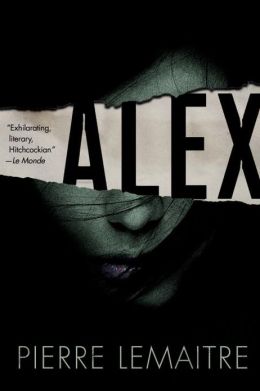
From "the new Stieg Larsson" (The Times) comes a dark, gripping thriller introducing Parisian police commandant Camille Verhoeven. The kidnapped young woman the detective is seeking, Alex Prévost, is tough, unconventional and no ordinary victim, but when the case shifts in a shocking way he discovers that saving her life will be the least of his formidable tasks. "An invigoratingly scary, one-sitting read." --The Guardian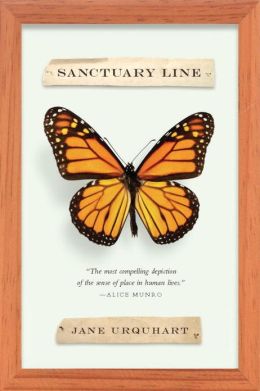
Returning to her family's abandoned farmhouse on Lake Erie to study the migratory habits of the Monarch butterfly, Liz Crane's homecoming is steeped in sadness and loss. Reflecting on the fragility and transience of human life and relationships--mirrored in the Monarchs' restless flight--she finds that love can be found where, and when, you least expect it. "Urquhart's style is reminiscent of that of the Pulitzer-winner Marilynne Robinson." --Irish Times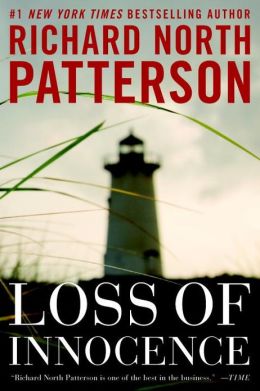
In this prequel to the New York Times bestseller Fall from Grace, as political, racial and social tensions engulf America during the summer of 1968, a privileged young woman begins to question the direction her life is taking. "Moves at high velocity, is grandly plotted with a crescendo of an ending. This is Richard North Patterson at the top of his game." --Ward Just, author of An Unfinished Season and Rodin's Debutante 
Falling in love isn't only for the young. On the brink of turning 60, Jeanie is hurt and bewildered when her husband inexplicably retreats from their marital bed. After meeting kind, sexy (and age appropriate) Ray at a park, she has the chance to embark on a bold second act…if she's willing to take the risk. "[A] tender and intriguing love story.... Boyd is as canny as Joanna Trollope at observing family life and better than Trollope at jokes." --Daily Mail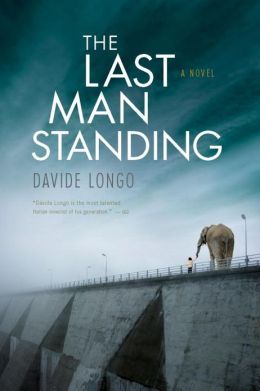
Set in near-future Italy, this dystopian novel combines the post-apocalyptic survivalism of The Road with the humanistic qualities of Water for Elephants. As the country descends into chaos, a disgraced former professor must get his two children to safety, digging deep to summon a quality he has never before exhibited: courage. "A novel in which precision of language is as crucial an element as the steadily accelerating tension." --The Independent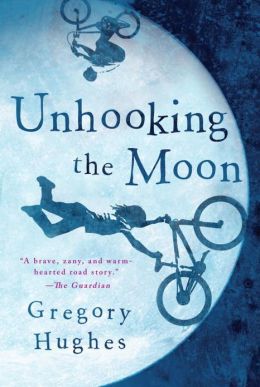
Recently orphaned, 10-year-old Rat--fearless, soccer-loving and prone to strange fits and premonitions--sets out with her older brother on an adventure-filled road trip across Canada and the U.S. to locate their long-lost uncle in New York City. Humorous and heartbreaking, this award-winning tale features "one of the most original and sparkling characters children's fiction has seen in a long time" (The Guardian).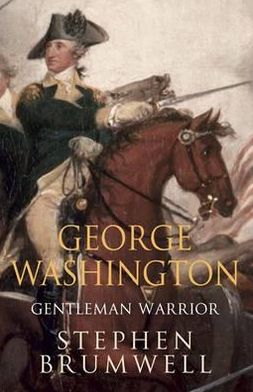
This riveting account of the secrets behind George Washington's success focuses on a side of the iconic figure often overlooked: his seminal years as a feisty young frontier officer and his early command of the ragtag Continental Army. Winner of the George Washington Book Prize just last month, historian Stephen Brumwell's biography was praised by the selection committee as "engaging…. Washington emerges as a flesh and blood man, more impressive than the mythical hero could ever be."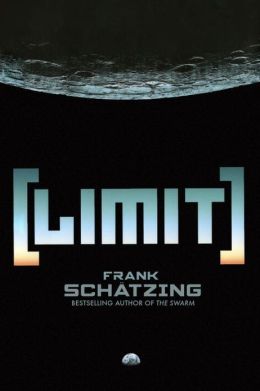
Popular German thriller writer Frank Schatzing makes his U.S. debut with a fast-paced, multilayered novel that weaves together fascinating scientific, historical and technical detail. An entrepreneur has opened the first hotel on the moon, but as cybercop Owen Jericho finds out, space tourism and claims to newfound natural resources are at the center of a high-stakes--and possibly deadly--conspiracy. 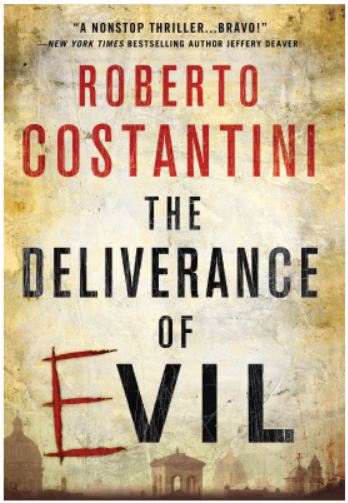
Haunted by an unsolved murder, Rome's Commissario Michele Balistreri re-opens a cold case that has left him guilt-ridden for more than two decades. This international bestseller is "one of those rare novels that combine the best elements of literature: it interweaves fascinating political history, the characters are portrayed with brilliant psychological insight, and it is a thriller that breathtakingly tantalizes readers from first page to last." --Jeffery Deaver
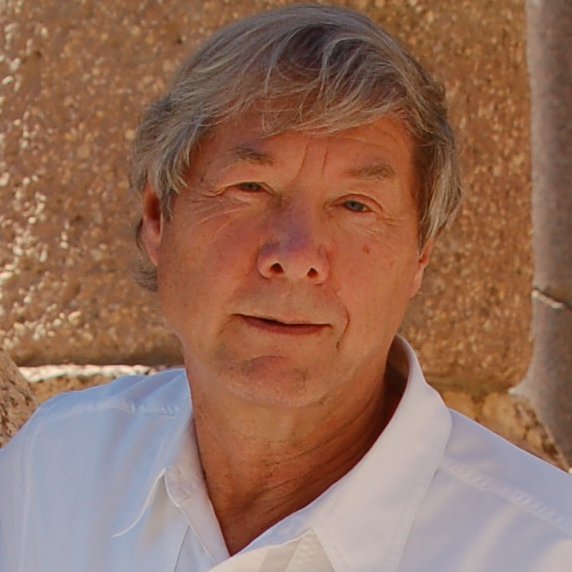 In 1968, the year Richard North Patterson graduated from college, the U.S. was mired in the Vietnam War. Political violence, anti-war protests and civil rights demonstrations were taking place. The sexual revolution was in full swing. Martin Luther King Jr. was assassinated and so was presidential contender Robert F. Kennedy. "It's as vivid a year as I've lived through," said Patterson. So vivid that for three decades he thought about using the tumultuous time as the backdrop of a novel.
In 1968, the year Richard North Patterson graduated from college, the U.S. was mired in the Vietnam War. Political violence, anti-war protests and civil rights demonstrations were taking place. The sexual revolution was in full swing. Martin Luther King Jr. was assassinated and so was presidential contender Robert F. Kennedy. "It's as vivid a year as I've lived through," said Patterson. So vivid that for three decades he thought about using the tumultuous time as the backdrop of a novel.
Set during the summer of 1968, Loss of Innocence is the story of Whitney Dane, a recent college graduate and the daughter of a Wall Street titan. In contrast to the country's turbulent state and a widespread uncertainty, her future as a high-society wife is secure. But while spending the summer on Martha's Vineyard planning her wedding, she meets ambitious and charismatic Benjamin Blaine, who encourages her awakening sense of independence and brings deep-rooted tensions in her picture-perfect family to a dangerous head.
Known for legal and political dramas and psychological suspense, Patterson enters new territory with Loss of Innocence. "This is a straight coming of age novel," he explained. Whereas in his previous books a single event typically propelled the storyline, such as a trial or a search for a stolen nuclear weapon, this story"is much more the way people experience life in that there is a confluence of events rather than one event or goal which is driving the narrative."

An unexpected turn of events happened for Patterson when he realized his long-awaited, 1968-set novel would work perfectly as a prequel to a book he had recently written, Fall from Grace, a suspense-filled family drama. Along with introducing Whitney Dane, Loss of Innocence sheds light on Benjamin Blaine and some of the other characters in Fall from Grace in their younger years. The final installment in the trilogy, Eden in Winter, is coming in 2014.
Conducting research for Loss of Innocence didn't require the same risky undertakings as some of Patterson's earlier books, for which he traveled to places such as Nigeria and Lebanon, both of which are on the U.S. State Department's travel warning list. Like the other titles in the trilogy, Loss of Innocence takes place primarily on Martha's Vineyard, a milieu he knows well. In addition to spending a couple of winters on the island, he has been summering there for nearly 20 years.
Patterson's research included speaking with a campaign advisor and speechwriter for Robert F. Kennedy as well as crashing a reunion of Wheaton College alumni to hear about their experiences at the Massachusetts school Whitney attended, which admitted only women at the time. The intrepid author once interviewed a man wanted by the Israeli Defense Forces. "It occurred to me that if they knew where he was, they could lob a missile on the place without caring who was with him," recalled Patterson. "That was not a problem I had doing Loss of Innocence, and that was fine with me."
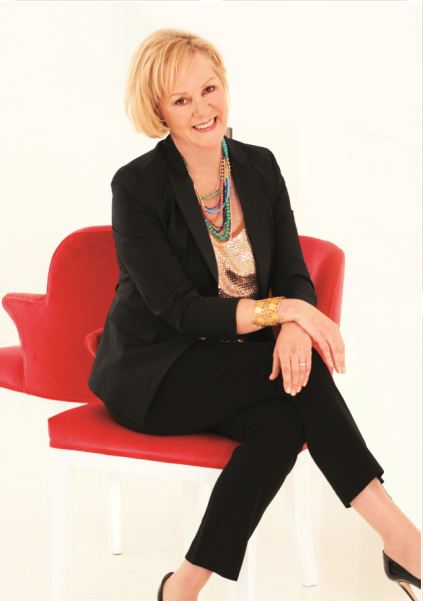
On your nightstand now:
Okay, I'm messy, so there's a stack--which my e-reader is reducing to some extent. Stack includes:
Skios, Michael Frayn, which made me laugh so much my husband, lying next to me in bed, was cheering when I finished it.
The Dalai Lama's How to Practise: The Way to a Meaningful Life, which has been there for ages because I keep hoping to become a better person. But perhaps just gazing at his face on the cover's not going to do it.
The Childhood of Jesus by J.M. Coetzee, which I found baffling and a bit ridiculous for such a brilliant writer.
May We Be Forgiven by A.M. Homes. I've only just started, but dark and funny so far. Dark is good.
Favorite book when you were a child:
My mother read to us a lot when we were small, mostly English classics. I think Winnie the Pooh by A.A. Milne was my favourite. I'm not big on personification of animals, but the wry and affectionate characterization of the toys is magic. Can't wait to read it to my granddaughters.

This is a bit like choosing from a huge menu then having to order really, really quickly before you change your mind!
Marilynne Robinson. Gilead is a work of genius.
George Eliot, Middlemarch etc. Pre-Freud, she could have been a shrink with her understanding of flawed--but intensely engaging--humanity. Dorothea Brooke is my heroine.
Cormac McCarthy. The Border Trilogy--elegiac, haunting, desolate. I'm in awe.
Émile Zola. I reckon he was the first novelist to create murderous bodice-ripper "realism" with novels such as La Bête Humaine and Nana. But Germinal breaks my heart on a whole other level.
Anne Tyler. Breathing Lessons etc. What's not to love!
Book you've faked reading:
Never have. Honest! I'm not being smug, I've just never felt any pressure to be well-read. However, there are sorry gaps in my reading, notably Moby Dick and Don Quixote, which I feel I should read for my own sake, but I JUST CAN'T DO IT!
Book you're an evangelist for:
Dutch writer Gerbrand Bakker's The Detour. Such a powerful novel about loneliness and the unsaid--almost ghostly and intensely moving.
Book you've bought for the cover:
Maybe I have, but I'm not aware of it. I don't have a design bone in my body.
Book that changed your life:
No question, The First Circle by Aleksandr Solzhenitsyn. Back in the late '60s, my friend and I were hanging out on a beach in the Canaries, aged about 19, and I hooked up with this cute Hungarian American who was reading this and seemed more interested in the book than me! So I went home and bought it and was instantly obsessed. Till then I'd read lighter stuff: Daphne du Maurier, Agatha Christie etc. This was my real introduction to literary fiction, and after that there was no stopping me.
Favorite line from a book:
This is a cheat, because it's a poem. But it gets me every time. Seems perfect to me, almost not a poem, simple yet intriguing. You can taste the plums. He's sorry, but not sorry enough to have resisted the temptation!
"This Is Just to Say"
I have eaten
the plums
that were in
the icebox
and which
you were probably
saving
for breakfast
Forgive me
they were delicious
so sweet
and so cold
--William Carlos Williams
Book you most want to read again for the first time:
The Shipping News by E. Annie Proulx. The characters--again, totally flawed--are so powerfully drawn and engrossing. I was right there with them all, in that incredible landscape, bleak, harsh but also beautiful and somehow redemptive. I was gutted when it was over.